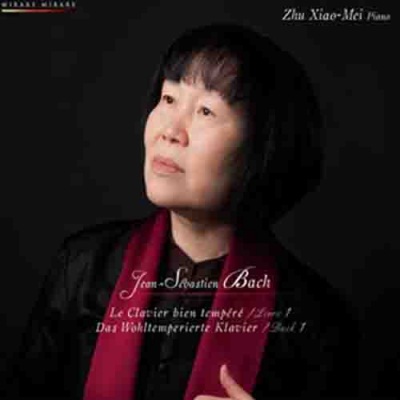
J.S. Bach: Well Tempered Clavier - vol. 1
Chinese-French pianist Zhu Xiao-Mei, who left the People's Republic in 1979, is anything but a cool technician, although technically she's marvelously equipped. Her Bach recordings are dramatic, risky, and idiosyncratic, and they tend to inspire strong reactions one way or the other. Her recordings of the Well-Tempered Clavier, issued in two sets on France's Mirare label, arguably play to her strengths, even if Bach would have been thrown for a loop by a good deal of what he was hearing. Zhu combines dramatic contrasts with a precise conception of overall architecture, a combination that makes the preludes and fugues of the Well-Tempered Clavier very exciting to listen to even if some of them clash with what an individual listener takes to be the character of a specific part of the collection. What makes it all work is that Zhu's voice is quiet even as she makes very startling statements. The famed Prelude No. 1 in C major, BWV 846, is not just pastoral but hushed and idyllic, almost a Schumann memory of childhood. Its C minor counterpart is entirely its opposite number in texture, rushing forward, with subtle dynamic variations suggesting suppressed energy, but it never approaches a hard edge. The entire set, though played on a modern grand, is chamber-sized, which is all to the good. Essentially a Romantic interpretation, Zhu's performance sometimes delinks the prelude-fugue pairs, which is a risky strategy. Yet she has an iron control that makes her playing stand out from the middle 20th century's view of Bach. She is at her strongest in Bach's really dense polyphony, which she unpacks in consistently original ways, but she can retreat to limpid radiance. In the interview-format booklet she calls the Fugue No. 22 in B flat minor, BWV 867, "a prayer. A universal prayer, because you know I always say Bach was Chinese!" Once you make your way through this packed-with-ideas set, you may well agree with her.
